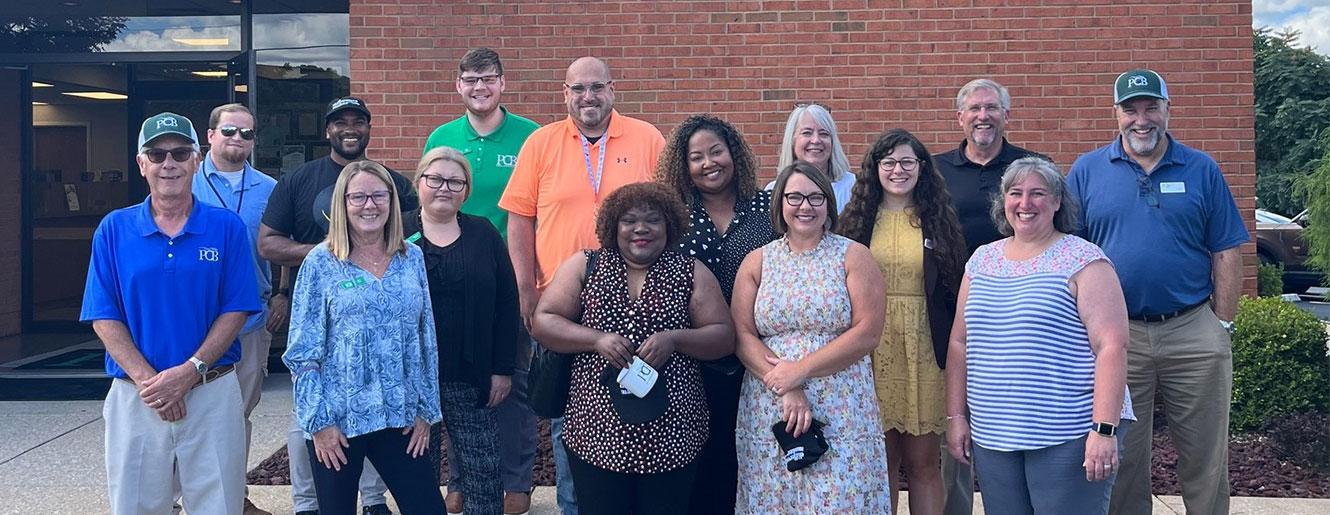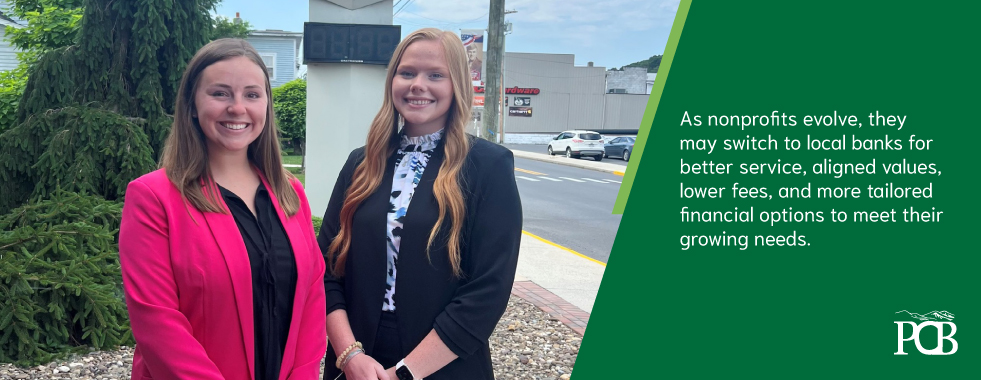
Choosing the Right Bank Account for Your Nonprofit
Nonprofits have unique financial needs and challenges that differ from individuals or business entities. Choosing the right bank account can be critical in enabling smooth operations and long-term financial stability, allowing your nonprofit to serve your clients and community more effectively.
If you’re not fully satisfied with the current financial health of your nonprofit, you may consider whether a different banking structure or account type would better support your mission and goals.
As an Independent Community Bank, we understand that maintaining financial transparency, facilitating nonprofit reporting, and minimizing costs are all key considerations that philanthropic organizations must keep in mind when setting up their financial infrastructure. In this post, we’ll discuss the reasons why nonprofits may best be served by smaller, community-oriented banks, as well as specific services and benefits to look for when selecting a bank account for your nonprofit.
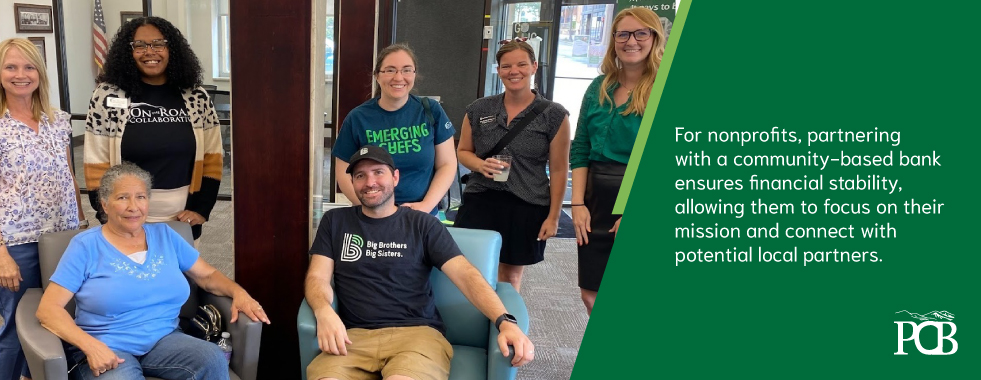
Unique Challenges Need Unique Services
For nonprofit organizations like yours, it’s not just about money; it's about ensuring you can keep doing your important work without a hitch. Understandably, the financial side of things can sometimes take a backseat in the heavy lifting of all the vast and vital undertakings required in running a successful nonprofit.
That's where having the right bank comes into play. Teaming up with a bank that understands your mission can help you navigate the financial aspects of nonprofit management so you can focus on what you do best. When you work with a local, community-based bank, they better understand the specific needs of the community you are fulfilling and are familiar with other area organizations and businesses, as well, including many potential partners.
How is a nonprofit bank account different?
Personal bank accounts are designed for individual use, handling personal finances and daily expenses. Business accounts cater to businesses, facilitating transactions, payroll, and other operational needs. Nonprofit bank accounts, on the other hand, are tailored for organizations that serve the community. They come with features that address nonprofits' unique financial challenges, ensuring that funds are managed efficiently. Features may include:
• Affordability: Nonprofit accounts often offer lower fees than commercial checking accounts, including low or no monthly maintenance fees, no minimum balance requirements, fee-free check writing, and affordable access to services.
• Earned interest: Many nonprofit organizations may find that—at times—their coffers are full. When you receive that big donation check, earning interest on your balance before you use it can be one crucial way to improve your nonprofit’s bottom line.
• Transparency and reporting: Transparency is particularly crucial for nonprofits, as they need to maintain the trust of donors, stakeholders, and the communities they serve. Additionally, because of complex tax requirements, nonprofits need financial statements that will simplify accounting processes. Documentation is key to facilitating both transparency and accounting practices, from easy-to-read and access statements to eDocuments with images.
• Payroll capabilities: Paying your dedicated staff for their hard work is an essential part of nonprofit financial management. Nonprofit accounts should offer affordable ACH options to make payroll easy.
• Easy donation options: Whether accepting electronic ACH payments or depositing checks remotely, nonprofits should have secure, robust, easy, and cost-effective methods to accept donations—for both their donors and their staff.
Impact Nonprofit Checking Account ticks all these boxes, offering:
• Free eDocuments with images to help facilitate transparency.
• Free Cash Management Services, including ACH Services and Payroll Tax Services.
• No minimum balance and no monthly maintenance fee.
• Unlimited check writing.
• Free eDocuments with images.
• Free Mobile Deposit Capture.
• Earned interest when you maintain a balance over $10,000 for the statement cycle.
• Multi-million-dollar FDIC insurance through CDARS and ICS.
In order to qualify to open a Pendleton Community Bank nonprofit account, you will need to provide operating documents and an EIN. You may also need a board resolution and two representatives tied to the account, as a protective measure.
Why do nonprofits choose to switch banks?
As nonprofits grow, change directions, or come to better understand their financial management needs, they may consider transitioning to a new financial institution that is better suited to their requirements. Reasons organizations may choose to switch banks include:
• Better service: Not all banks offer the same level of customer service, and nonprofits may benefit from more dedicated and community-focused financial institutions.
• Closer-aligned philosophies: While nonprofit organizations and financial institutions serve different roles, banks that are based locally—rather than nationally—not only have closer ties to the communities they serve, but they are also part of a localized network of businesses, services, and organizations.
• Lower fees: Each nonprofit organization has different banking needs based on its mission, size, and day-to-day operations. Whether your nonprofit is utilizing a commercial bank account with standard fees, or simply an account with fees associated with your most-used services, finding a nonprofit account with lower fees can provide significant savings, allowing your dollar to go further.
• More options: As with for-profit businesses, nonprofits often outgrow their initial needs, requiring an account that can grow with them. From added services like remote deposit capture or payroll to earned interest on higher balances, sometimes nonprofits need to switch to a bank who can better fulfill their current needs.
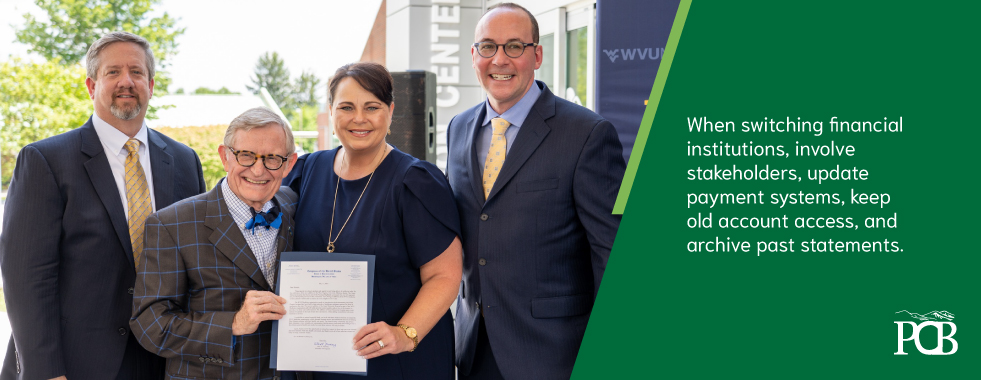
Important Considerations When Switching Banks
While the thought of transitioning might appear overwhelming, with a little planning and the right guidance, the process can go off without a hitch. Here are a few things to plan for if you are considering switching financial institutions:
• Include all relevant parties: When choosing a new financial institution, stakeholders, including board members, donors, employees, and volunteers, should be kept in the loop. This ensures transparency and can also help in gathering feedback or addressing concerns.
• Update account numbers and payment details: Any automated payment systems with vendors, donors, utilities, or other services need to be updated before your transition is completed. This step is crucial to prevent any disruptions in incoming donations or outgoing payments.
• Retain temporary access to your previous account: Until you are certain that all connected accounts and systems are updated, be sure to keep your previous account open and accessible.
• Store records of previous account statements: Before closing, make sure you have a system in place, including digital copies and archived printed statements, to easily retrieve past financial data if required.
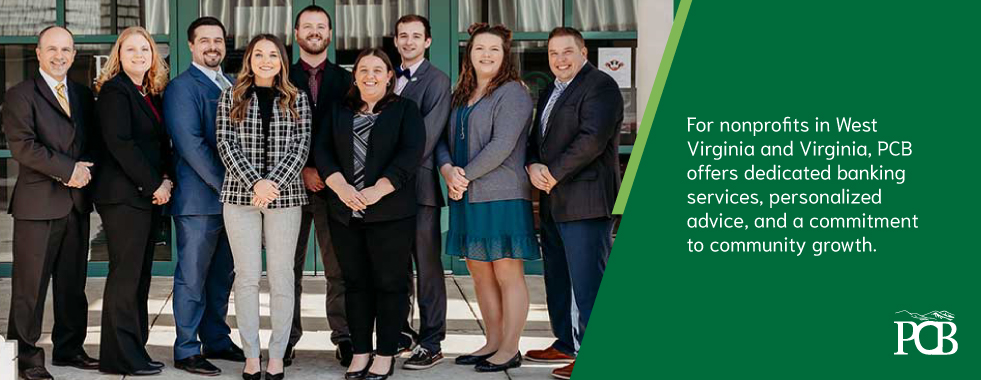
Find the Right Bank Account for Your Nonprofit
Selecting the appropriate bank account is pivotal for a nonprofit's effectiveness. If you're based in Franklin WV, Petersburg WV, Moorefield WV, Harrisonburg VA, Bridgewater VA, or Staunton VA, consider the benefits of banking with us.
At PCB, we're not just a bank. We're dedicated to assisting nonprofits in their mission, fostering financial stability and growth. We’ll provide your nonprofit with a dedicated relationship manager, offering personalized service and advice tailored to your organization's needs. From specialized nonprofit accounts to our commitment to the communities we serve, we work hard to be dedicated banking partners to our nonprofit customers.
Connect with us today to learn more about how we can serve you. Together, we can amplify your impact!

